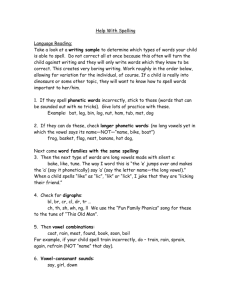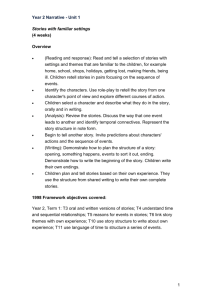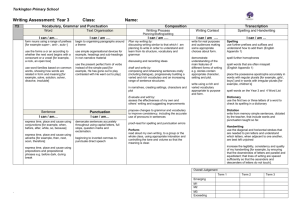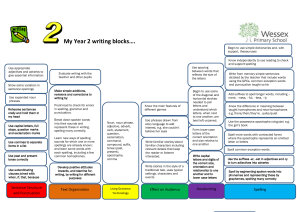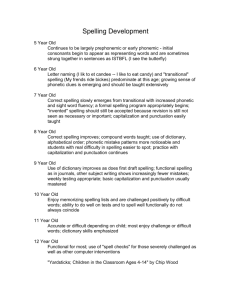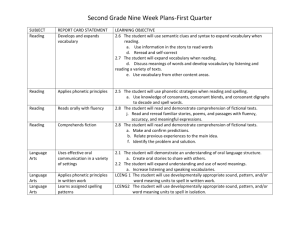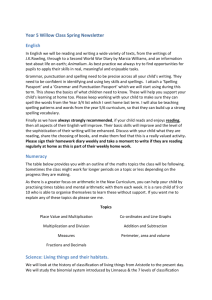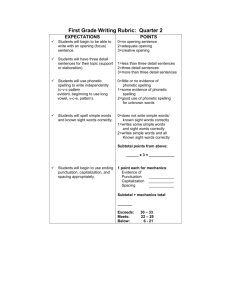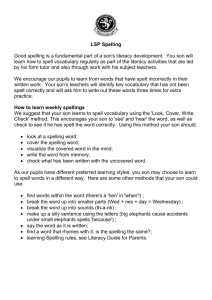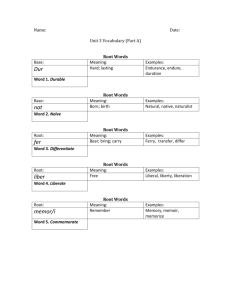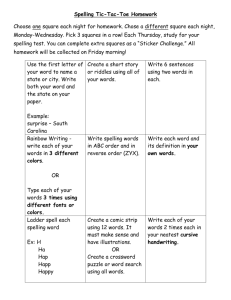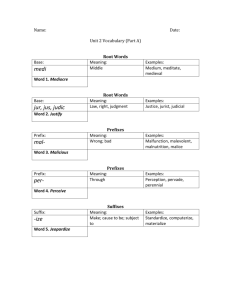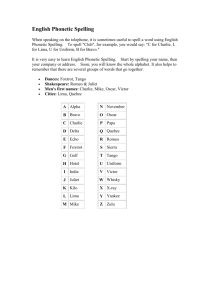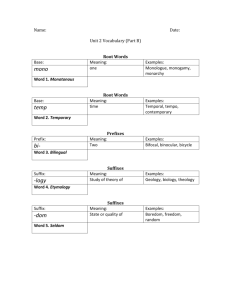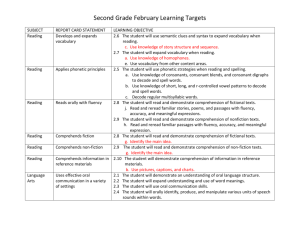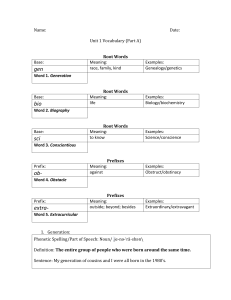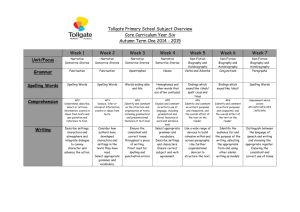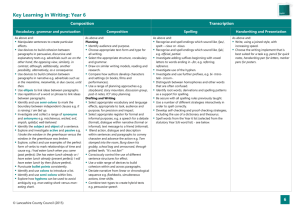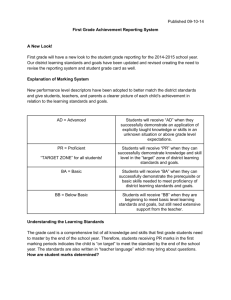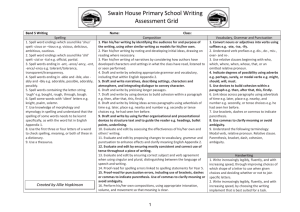Writing Parent Brochure Kindergarten
advertisement
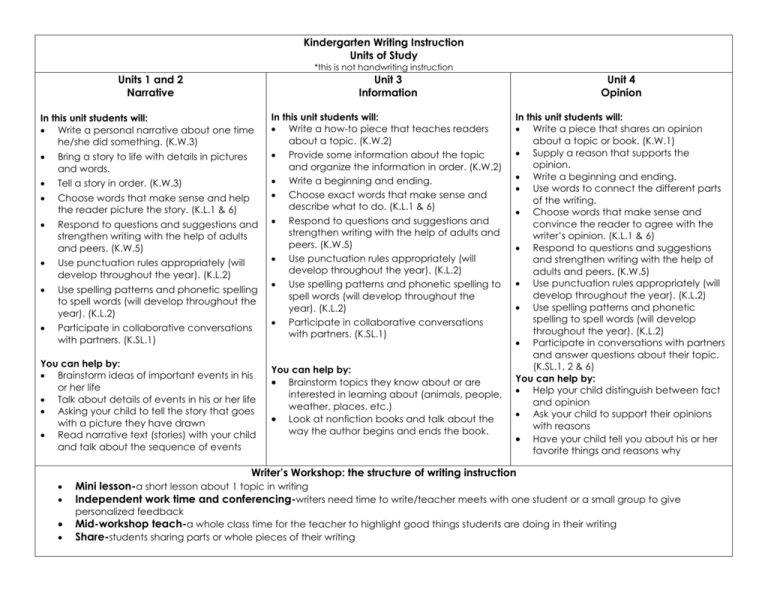
Kindergarten Writing Instruction Units of Study *this is not handwriting instruction Units 1 and 2 Narrative In this unit students will: Write a personal narrative about one time he/she did something. (K.W.3) Bring a story to life with details in pictures and words. Tell a story in order. (K.W.3) Choose words that make sense and help the reader picture the story. (K.L.1 & 6) Respond to questions and suggestions and strengthen writing with the help of adults and peers. (K.W.5) Use punctuation rules appropriately (will develop throughout the year). (K.L.2) Use spelling patterns and phonetic spelling to spell words (will develop throughout the year). (K.L.2) Participate in collaborative conversations with partners. (K.SL.1) You can help by: Brainstorm ideas of important events in his or her life Talk about details of events in his or her life Asking your child to tell the story that goes with a picture they have drawn Read narrative text (stories) with your child and talk about the sequence of events Unit 3 Information Unit 4 Opinion In this unit students will: Write a how-to piece that teaches readers about a topic. (K.W.2) Provide some information about the topic and organize the information in order. (K.W.2) Write a beginning and ending. Choose exact words that make sense and describe what to do. (K.L.1 & 6) Respond to questions and suggestions and strengthen writing with the help of adults and peers. (K.W.5) Use punctuation rules appropriately (will develop throughout the year). (K.L.2) Use spelling patterns and phonetic spelling to spell words (will develop throughout the year). (K.L.2) Participate in collaborative conversations with partners. (K.SL.1) In this unit students will: Write a piece that shares an opinion about a topic or book. (K.W.1) Supply a reason that supports the opinion. Write a beginning and ending. Use words to connect the different parts of the writing. Choose words that make sense and convince the reader to agree with the writer’s opinion. (K.L.1 & 6) Respond to questions and suggestions and strengthen writing with the help of adults and peers. (K.W.5) Use punctuation rules appropriately (will develop throughout the year). (K.L.2) Use spelling patterns and phonetic spelling to spell words (will develop throughout the year). (K.L.2) Participate in conversations with partners and answer questions about their topic. (K.SL.1, 2 & 6) You can help by: Help your child distinguish between fact and opinion Ask your child to support their opinions with reasons Have your child tell you about his or her favorite things and reasons why You can help by: Brainstorm topics they know about or are interested in learning about (animals, people, weather, places, etc.) Look at nonfiction books and talk about the way the author begins and ends the book. Writer’s Workshop: the structure of writing instruction Mini lesson-a short lesson about 1 topic in writing Independent work time and conferencing-writers need time to write/teacher meets with one student or a small group to give personalized feedback Mid-workshop teach-a whole class time for the teacher to highlight good things students are doing in their writing Share-students sharing parts or whole pieces of their writing
